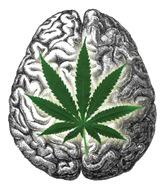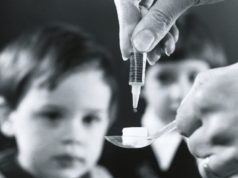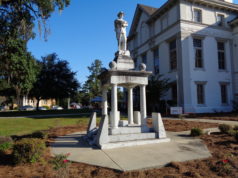
There they go again.
The folks opposed to Amendment 64, which would legalize marijuana and regulate it like alcohol, are claiming (once again) that marijuana should be kept illegal “in order to protect our kids.”
Or, as Gov. John Hickenlooper put it in his statement opposing the amendment: “Amendment 64 has the potential to increase the number of children using drugs and would detract from efforts to make Colorado the healthiest state in the nation. It sends the wrong message to kids that drugs are OK.”
Coming from Governor Hick, the line about detracting from efforts to make Colorado the healthiest state in the nation is a real howler. Before entering politics, Hickenlooper’s main claim to fame was that he was the founder and operator of the Wynkoop Brewing Company, the oldest brew pub in Denver and one of the most successful. The governor’s success as a beer pusher helped launch his political career. It may seem churlish to dwell on this point, but alcohol causes 300 to 400 overdose fatalities a year, more than 40,000 cases of cirrhosis of the liver, more than 20,000 fatal traffic accidents, and millions of violent crimes, including most of the domestic violence in the U.S. When it comes to detracting from “efforts to make Colorado the healthiest state in the nation,” Hickenlooper has a lot of detracting to make up for.
But this raises an obvious question: Given alcohol’s trail of death, disease and violence, why isn’t its production, sale, use and possession prohibited — like marijuana, which is much safer on all counts. The answer, which I suspect Hickenlooper would give you in a sober moment (or at least when he was still running his brew pub) is: Prohibition was tried, and it failed to curb alcohol consumption. Prohibition created a national black market for alcohol, which in turn fueled organized crime and corrupted police and other public officials.
Unregulated alcohol production sometimes resulted in the sale of adulterated products that poisoned their users. And unregulated sale of alcoholic beverages meant that children could obtain booze as easily as adults. As a result of prohibition’s failures, the country eventually decided to abandon it and legalize alcohol, and regulate it like, well, alcohol.
The case for repealing alcohol prohibition, of course, closely parallels the case for legalizing marijuana — including the point about regulation making it more difficult for kids to obtain the regulated substance. Like alcohol prohibition, marijuana prohibition does not protect “our kids,” and especially not our teenagers. Multiple surveys of teenage drug use have reported teens saying it’s easier for them to get illegal (and unregulated) pot than it is for them to get legal (and regulated) alcohol. In other words, regulation works better than prohibition for protecting our kids.
When the medical marijuana industry took off in Colorado four years ago, pot prohibitionists claimed, as they do now, that it had the potential to increase the number of children using drugs. But that theory didn’t stand up to reality. A survey by the Centers for Disease Control found that between 2009 and 2011, the period of high growth for the medical marijuana industry, teenage pot use in Colorado declined, while teenage pot use nationally increased. (I suspect this is because the emergence of 100,000 people who could buy pot legally reduced the number of pot dealers in the state.)
If kids need protecting from anyone, it’s from the marijuana prohibitionists. Marijuana prohibition has resulted in millions of young Americans, both teenagers and young adults, being burdened with criminal records — which can adversely affect educational and employment opportunities, among other things — for conduct no more serious than drinking beer in Governor Hick’s brew pub. Moms who might be inclined to vote to keep pot illegal might want to consider whether they are doing their kids any favors if the price of keeping them away from pot at age 16 is a criminal record at age 21.
Gov. Hickenlooper also trotted out the marijuana prohibitionists’ hoary canard about marijuana legalization “sending the wrong message to kids that drugs are OK.” The truth is it’s the prohibitionists who have been sending the “wrong message” (messages actually) on pot — to kids and adults alike. In fact, they have a genius for sending the wrong message, and they have been doing it for 75 years. (Marijuana was made illegal in 1937.) The crux of their message was and still is that prohibition would keep people from using marijuana. The record shows it didn’t.
In 1937 the government estimated that there were approximately 100,000 marijuana users in the country — almost all of them adults. Today, it’s more like 25 million, including several million under the age of 21. In fact, a case can be made that marijuana prohibition not only failed to prevent the increase in pot use, but contributed to it. The big run-up in marijuana use occurred in the 1960s and was part of the broader cultural revolution that occurred then. Smoking pot was an act of rebellion, a way of making a statement, and a way of sticking a finger in the eye of established authority. Marijuana use would have been none of those things if it hadn’t been made illegal in 1937. In the 1960s young Americans started using marijuana not despite the fact that it was illegal, but because it was illegal.
A similar sort of psychological dynamic is at work today. A core message of drug prohibitionists is kids don’t do drugs. Period. The government has spent billions spreading that message to the nation’s kids. Millions of teens who heard the message then went out and smoked pot. Why? Curiosity, surely, but also to make a statement — that they are not kids anymore.
For many teens the prohibitionists have made marijuana smoking a rite of passage. Talk about sending the wrong message.
Respond: [email protected]














